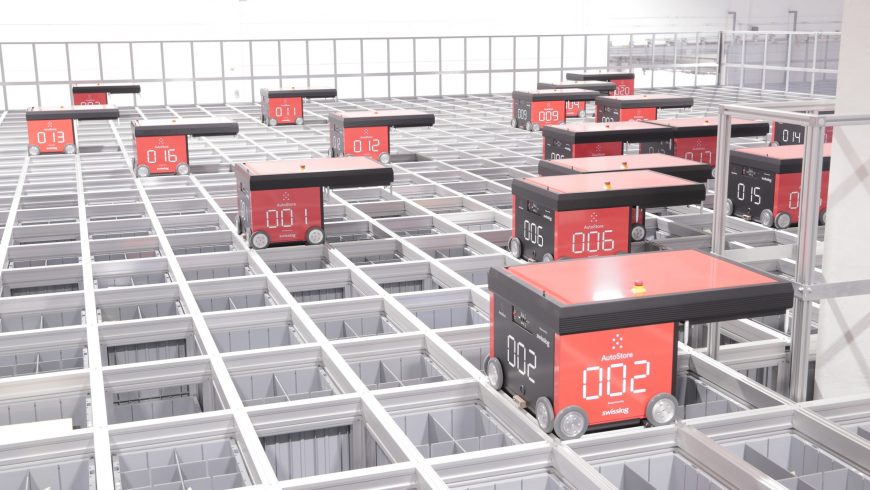>> Learn more about the 2021 strategic update
A strategy based on a growth and value-creation approach through three strategic initiatives
1
Accelerating growth through “More Customers, More SKUs, More Digital”
2
Improving operational and financial performance, in particular through digital
3
Increasing selectivity of capital allocation
“For the coming years, the Group reaffirms these fundamentals with the aim of becoming a benchmark for services and data use in the world of energy sector distribution.”
The acceleration of the digital transformation
- The growing focus on new customers acquisition and the ability to retain our existing customers (which translates in “more customers”) provides resilience in a period of crisis
- The capacity to suggest additional product lines (more items) allows widening the existing customer basket and limiting the business volatility
- The progress of our digital sales contributes to the improvement of the customer experience (in average, a customer shopping online orders more than a traditional customer). In addition, the crisis period reinforced the adoption of digital solutions such as customer management tools, tools allowing remote interactions or sales support solutions using artificial intelligence
2 pillars:
1
Continued organic growth and continuous improvement of the gross margin and cost structure
2
Migration to a leading data-driven services company
Constant strengthening of the Group to guarantee profitable organic growth and benefit from structural gains caused by the transformation
An organic growing strategy based on a “More customers & More references & More digital” approach (“More customers, More SKUs, More Digital”)
Rexel targets both net customer gains and increasing the average basket with each customer, especially thanks to its digital offer. Indeed, Rexel observes that online customers who use its digital environment generate more sales with the Group.
In 2021, the share of digital sales in the Group is €3.5 billion (24%) and makes of Rexel a leading BtoB e-commerce player and reinforces the resilience of the model.
This “More Customers, More SKUs, More Digital” strategy is supported by accelerated digitization of sales and operations, including the development and implementation of new tools and applications. The growth in demand for energy efficiency solutions and renewable energies is also a level for the performance of this strategy.
Rexel revised its incentive policies and is constantly adapting its human resources strategy to reflect the need for new skills.
Rexel renews its ambition to achieve organic sales growth above market growth in the markets where the Group operates, while prioritizing an improved profitability, particularly thanks to the investments made.
Continuous improvement of the gross margin and cost structure
In the medium term, Rexel plans to increase its Adjusted EBITA and improve its Adjusted EBITA margin by leveraging the investments of the past four years: investments in development, team transformation and recent restructuring.
Beyond the investments of the past four years, the continuous improvement of margin and costs is also based on the best practices shared within the Group, which include:
- Managing the pricing conditions and customer discounts;
- Diminishing the number of suppliers in order to rationalize purchasing and further develop existing partnerships;
- Optimizing sales force efficiency by intensifying business planning and regular training; and
- Digitizing back office activities and regularly reviewing processes.
This is reflected in particular in the:
- Digitization of invoicing, credit and payment processes, and the administration of human resources;
- Flexibilizing costs; and
- Environmental and social performance at the core of the strategy.
Migration to a leading data-driven services company
Adoption of a service strategy, segmented around three types of product and service offers
The Rexel Group wishes to evolve towards a more segmented product and service offering adapted to the different needs of its customers.
The approach is differentiated according to three types of product and service offers:
“Proximity” |
|
value proposition (representing approximately 60% of Group sales), based on a strengthened presence thanks to a density of agency/counter coverage, a systematic omni-channel approach and continuous improvement in service levels. |
“Projects” |
|
value proposition (representing approximately 27% of the Group sales), based on a process of offering specific products and solutions supported by a catalogue of services for industrial or commercial projects. |
“Specialty” |
|
value proposition (representing approximately 13% of the Group sales) through an ability to advise and satisfy customers with very specific needs on typical products and solutions. |
In future years, the Rexel Group plans to multiply digital approaches in tandem with the physical networks. More particularly, in the Proximity segment, a new model of service was launched in 2020 in the Paris area. The customer promise revolves arounds an offer of products of more than 20,000 items, instantly available on site or through a new service of lockers located in parking lots of central Paris. The combination of a latest generation logistics tool, expanded hours and lockers on-site and off-site 24/7 allows a significant improvement of our “Proximity” customer offer.
Migration to a data-driven company
The second part of the Rexel Group’s transformation is to become a data-driven company. It is about using available and relevant data to make decisions based on facts and analyses and not simply on beliefs or experiences. This transformation is derived along three axes:
Customer axis
Consisting in enriching the customer experience. The Rexel Group will deepen its insight on its customers’ experience and use the data available to ensure an ever simpler and more fluid experience. Initiatives will be prioritized starting with those with the greatest customer impact. Thereby, the implementation on our websites of customized home pages, offering customers differentiated offers based on their purchase profile category is an additional step towards an enriched customer experience. In this context, the Group is particularly committed to comply with the various aspects of the legislative environment for the protection of personal data.

Internal axis
Consisting in performance improvement through the implementation of use cases based on algorithms and artificial intelligence. For instance, as of now, a predictive artificial intelligence solution sends alerts to salespersons in order to notify them that some customers are likely to see their sales decrease in the next six months and require greater attention.
Supplier axis
Consisting in the development and generalization of a dedicated data analysis offer for each supplier. This offer allows each supplier who subscribes to it to receive factual information on its market positioning, its omni-channel offer and its digital conversion rate by product category. This axis also includes a reprofiling of the combined way to best target our customers through field and digital marketing.
Mid-term ambition
Over the past four years, Rexel has proven its ability to structurally outperform the growing and increasingly attractive electrical distribution market, boosted by demand in green energy and energy efficiency.
The 2020 pandemic has validated the strategic choices made by Rexel to invest early and heavily in digital and salesforce to build a truly omnichannel model, offering not just the right product at the right time, but also tailored services and solutions to accompany the increasingly technological and environmentally-friendly needs of our customers.
Rexel also proved its agility and adaptability to address short terms headwinds, as illustrated by the strong reduction in operating expenses carried out over the past year, and robust and resilient free cash flow generation across the cycle.
After leading Rexel’s transformation, the company’s strengthened and experienced management team is fully focused on driving execution to deliver the following targets in the 2021-2023 period:
- Growth in revenue: Outperform the market by 50 bps to 100 bps.
- Improvement in profitability: Adjusted Ebita margin from around 5% in 2021 to above 6% in 2023 at constant scope and circa 6.5% including potential portfolio management.
- Enhanced cash generation: FCF before Interest and Tax conversion rate above 60%.
- Balanced capital allocation:
- A dividend policy of at least 40% of recurring net income
- Normalized capex to sales level of circa 0.9%
- Balance sheet optimization: Net Debt/EBITDAaL ratio of around 2.5x, to create value by seizing market opportunities or increasing return to shareholders.
ESG targets for 2030 are also embedded in Rexel’s ambition: A 35% reduction in CO2 emissions of our operations (scope 1&2) and a 45% reduction in CO2 emissions from the use of products sold (scope 3).

